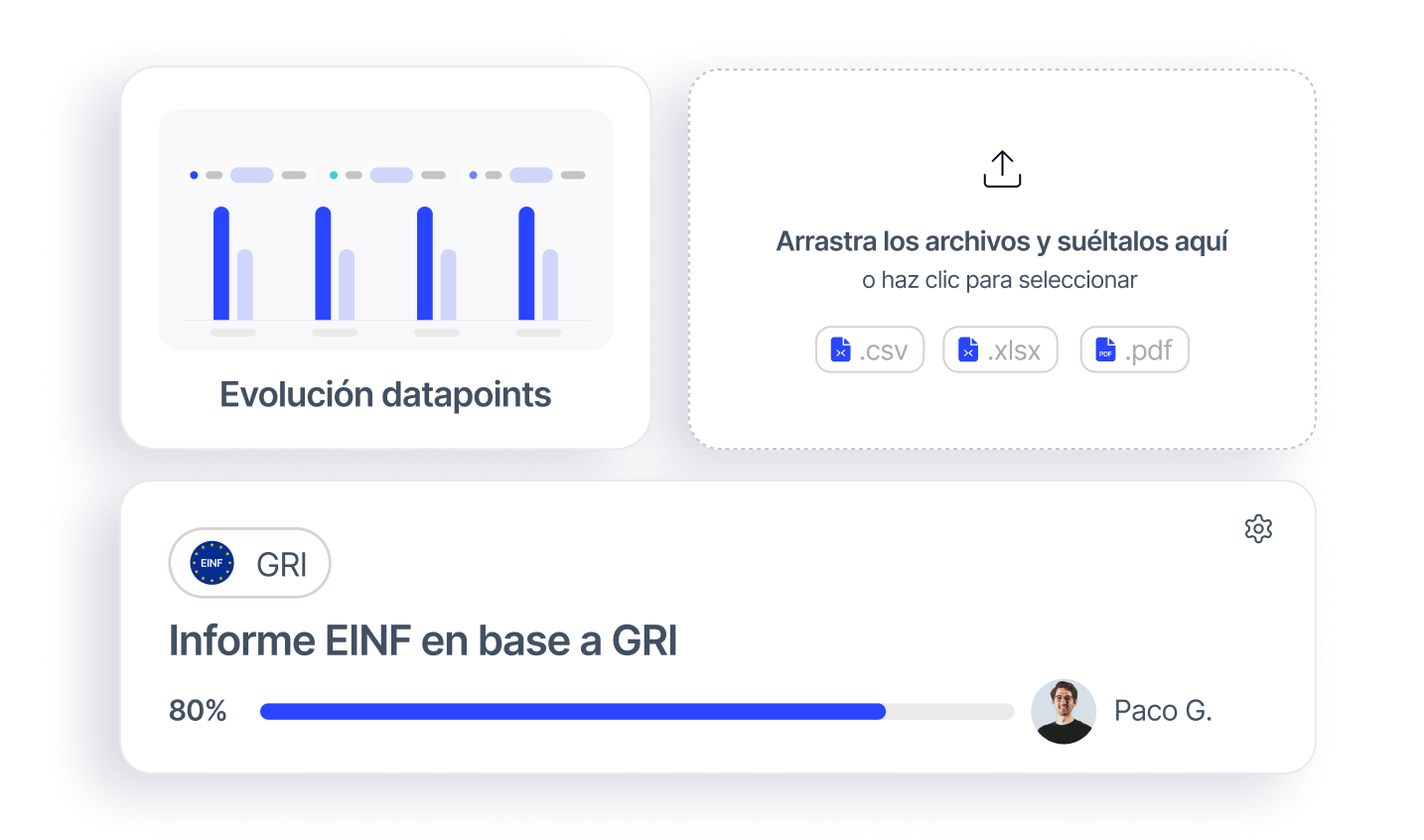Fijar objetivos de reducción con SBTi en 2025


El Acuerdo de París comprometió a los gobiernos a limitar el aumento de la temperatura global a 2 °C, y preferiblemente a 1,5 °C. Las empresas, como principales emisoras de gases de efecto invernadero (GEI), deben reducir a la mitad las emisiones para 2030 y lograr emisiones netas cero para 2050.
Los "Objetivos con Base Científica" (SBT) son metas definidas por empresas, alineadas con los criterios de la Science Based Targets initiative (SBTi), para reducir sus emisiones de GEI. Los SBT impulsan la descarbonización, buscando convertirse en una ventaja competitiva y asegurar que los objetivos sean consistentes con las recomendaciones científicas para mitigar el cambio climático. Más del 80% de las 500 empresas más grandes ya establecieron metas de reducción, reflejando un compromiso empresarial con la economía baja en carbono.
Establecer objetivos SBT en las empresas ofrece varias ventajas clave:
- Impulso de la innovación: Fomenta la innovación y el desarrollo tecnológico, posicionando a las empresas como líderes en la transición hacia una economía de bajas emisiones.
- Ahorro de dinero y competitividad: Garantiza la eficiencia y la sostenibilidad a largo plazo, cruciales en un futuro en el que los recursos son costosos, mejorando la posición competitiva y la rentabilidad.
- Crear credibilidad y reputación: Refuerza la reputación entre las partes interesadas liderando las cuestiones climáticas, generando confianza entre inversores, clientes y empleados.
- Influir en el cambio normativo y prepararse para él: Sitúa a las empresas por delante de futuras normativas, lo que permite influir en políticas clave y reducir la incertidumbre regulatoria.

La iniciativa Science Based Targets invita a las empresas a demostrar liderazgo en la acción climática comprometiéndose públicamente con objetivos de reducción de GEI basados en la ciencia. Las empresas participantes serán reconocidas en sciencebasedtargets.org. Para unirse, se deben completar cinco pasos clave.
1. Rellenar un formulario de compromiso. Esto indica que se comprometen a establecer objetivos basados en la ciencia.
2. Desarrollar el objetivo. Las empresas tienen 24 meses para desarrollar y anunciar su objetivo.
3. Cuando anuncien el objetivo, debe ser revisado y validado por la Iniciativa de Objetivos Científicos.
4. La empresa debe calcular y comunicar la huella de carbono total a la iniciativa y hacerla pública, algo que puede simplificarse significativamente mediante un software de contabilidad de carbono que automatiza el cálculo y garantiza la trazabilidad del dato.
5. Informar sobre las emisiones de la empresa y revisarlas anualmente.
Además, las organizaciones que buscan mejorar su gestión interna y la fiabilidad de sus procesos pueden apoyarse en un software ISO 9001, que contribuye a estandarizar procedimientos, aumentar la eficiencia y fortalecer la calidad en la implementación de sus estrategias de sostenibilidad.
¿Cuáles son los criterios para definir los objetivos de la Iniciativa de Objetivos Científicos?
- Límite : Incluir las emisiones de Alcance 1 y 2, y todos los GEI relevantes según el protocolo de GEI.
- Marco temporal: Los objetivos de reducción a corto plazo deben ser para un mínimo de 5 y un máximo de 10 años a partir del anuncio.
- Nivel de ambición: El mínimo debe alinearse con los objetivos de no más de 1,5 C de aumento de la temperatura global para los alcances 1 y 2 y no más de 2 C para el alcance 3.
-Alcance 3: Necesario y cuantificable si representa más del 40% de las emisiones totales, incluida la cadena de valor, o si la empresa representa al sector de los recursos fósiles (petróleo, gas natural, etc.).
- Informes: Divulgar anualmente el inventario de emisiones de GEI de toda la empresa.
Nos especializamos en el cálculo de la huella de carbono y la gestión ambiental, ofreciendo no solo una solución eficaz para empresas en la transición hacia una economía baja en emisiones, sino también beneficios significativos. La plataforma optimiza la evaluación y mejora del desempeño ambiental al recopilar y medir automáticamente datos relevantes de manera eficiente. A través de su funcionalidad de Modelización, permite establecer objetivos específicos alineados con GHG protocol y SBTi, proporcionando una visión integrada para una reducción de impacto y reporting efectivo con métricas relevantes.
Dcycle facilita el establecimiento de objetivos de reducción alineados con la SBTi, convirtiendo estos objetivos en acciones tangibles. La plataforma también permite recopilar y calcular las emisiones de la cadena de suministro (Alcance 1, 2 y 3) y trabajar en colaboración con los proveedores, contribuyendo así a demostrar liderazgo en sostenibilidad y responsabilidad corporativa, impulsando acciones inmediatas hacia un futuro más sostenible. Súmate a las compañías comprometidas estableciendo objetivos a corto y conviértete en la empresa del futuro.

Sí, en la práctica muchas empresas industriales tienen que responder igual. Clientes y bancos piden datos de cadena de valor, huella y controles.
Puedes no publicar, pero vas a tener que demostrar.
Depende de tu doble materialidad, pero en industria suelen aparecer con frecuencia E1 (clima), E2 (contaminación y sustancias), E5 (circularidad), S1 (seguridad y condiciones laborales), S2 (cadena de valor) y G1 (conducta y controles).
Se estructura como proceso: inventario de IROs por planta y proceso, criterios de evaluación, umbrales, evidencias y decisiones registradas.
Así puedes defender el por qué ante revisión y repetirlo cada año sin reinventarlo.
Lo mínimo viable suele estar ya en tu organización: facturas y contadores de energía, datos EHS, compras y proveedores, RRHH y PRL, y registros de residuos y agua.
Se puede arrancar con un piloto por planta y escalar.
Con un enfoque realista: datos primarios cuando existan, y factores secundarios justificables cuando no.
Con trazabilidad de supuestos, versiones y evidencias por categoría.
